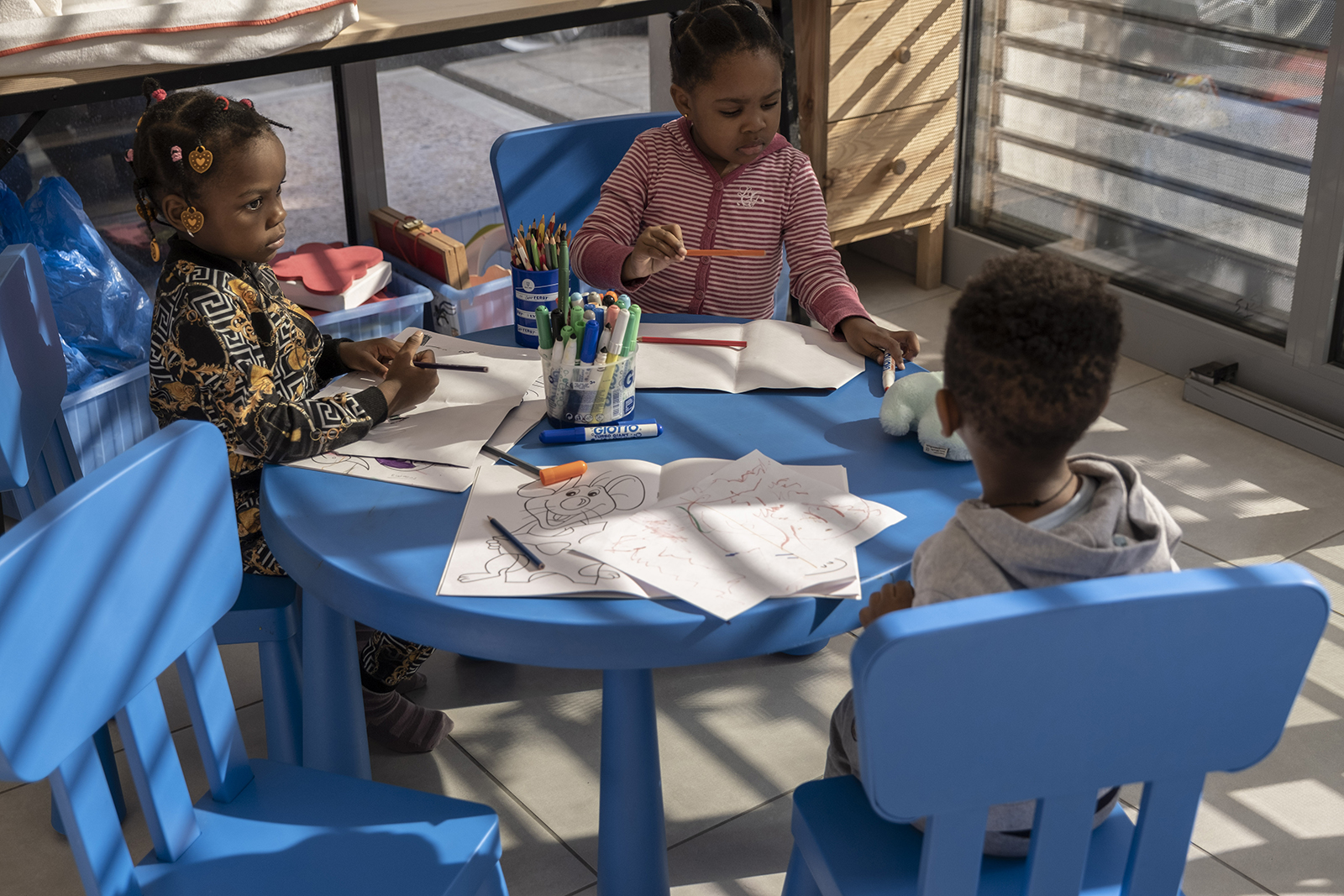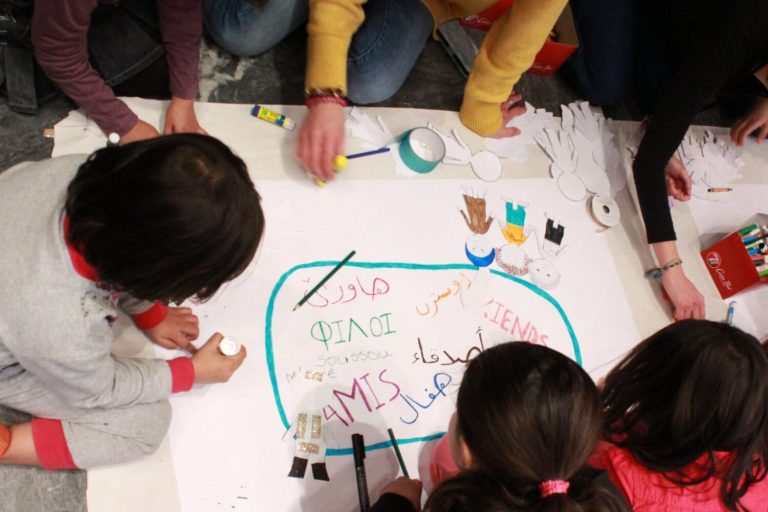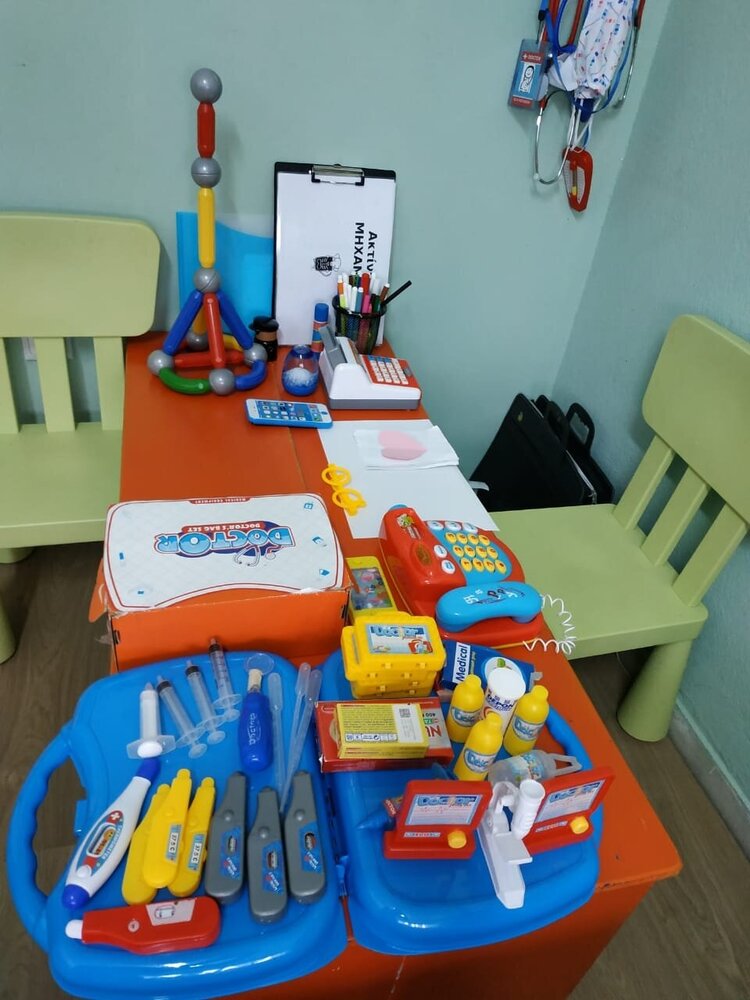
Through no fault of their own
20 Νοεμβρίου 19
Last summer, a reserved 10-year old girl named Bahar* joined Baytna, an early childhood development program accessible to displaced children in northern Greece. Bahar grew up as one of the 420 million children living in conflict zones nowadays. She is one of about 30.000 displaced children living in Greece today, as Europe’s migration crisis continues roiling at Europe’s periphery.
Today is the 60th anniversary of the UN Declaration of the Rights of the Child. It has been canon since 1959 that “the child, by reason of his physical and mental immaturity, needs special safeguards and care, including appropriate legal protection, before as well as after birth.” Today is also the 30th anniversary of the UN Convention on the Rights of the Child, which lays out baselines to evaluate children’s freedom from discrimination across the world, and commits states to pursue children’s best interests and defend their right to life, development, and participation in society.
Needless to say, in 2019 these baselines remain an impossible for ceiling for hundreds of millions of children. Children whose deprivations begin before they are born. During gestation, through pregnancies fraught with difficulty, putting them at a disadvantage before they even draw their first breath.
Fetal programming describes how adverse experiences during a mother’s pregnancy can alter the environment in utero and contribute to physical and psychological pathologies through a child’s life. A mother who struggles to find food during her pregnancy deprives, through no fault of her own, her child of vital nutrients for her or his healthy physical development. A mother who struggles with anxiety and depression during pregnancy may, though no fault of her own, pass psychological and psychiatric issues to her child, with long-lasting adverse effects.
Children born of a healthy pregnancy, moreover, can still see their development inhibited by toxic stress. Toxic stress accumulates in children who are exposed to adverse conditions that activate their stress response systems, and who do not receive protective care from caregivers. Protective care, when it is provided, buffers the stress and helps children descend back from a stress response to a baseline state. However, elevated stress can warp into toxic stress and accumulate if this protective care is withheld.
Why? Because, though no fault of their own, parents struggling to survive in a conflict zone may not be able to recognize, let alone buffer, their child’s stress responses. Because displaced families struggling to access shelter, services, or support need to work twice as hard to weave together a network of supportive relationships for themselves and for their children, and may need to weave them time and time again if conflict catches up and displaces them again.
Three years ago, we founded Refugee Trauma Initiative to offer displaced children and youth the psycho-social and developmental support they need to overcome adversity and trauma, and build up their sense of belonging—to their community of origin, and to their host community. Day in, day out, we interface with and try to mitigate the inequalities that displaced children suffer, through no fault of their own.

Having reached safety in Greece, Bahar’s family have struggled to obtain papers, which has kept her from enrolling in school. Instead, she comes to Baytna almost every day, where we have had the chance to see her bloom. Baytna’s ECD approach is built around play, and we spend a lot of time facilitating children’s exploration of their own imaginations and guiding their day-dreaming. “I will grow old and become an artist like my father,” says Bahar. “I will go to school and first learn how to write and draw. Then I will buy a lot of brushes and watercolors and I will write poems and illustrate them.” At other times, Bahar imagines herself a doctor, helping and healing those around her.
Because of the accumulated inequalities she suffered in life including multiple interruptions to her schooling, through no fault of her own at age 10 Bahar does not know how to write. When we started working with her, Bahar saw this as an obstacle to fulfilling her dreams. Now, after five months training her imagination and building up her resilience, literacy has become a road she is eager to travel.
She is no longer held back by fear, but rather driven by curiosity. And though she may not be able to write as her peers do, she communicates her creativity by drawing out her dreams. She constructs her aspirations by setting up and maintaining functional play spaces—the doctor’s consult, the restaurant, the school, and the lego-bicked construction space—where her and her peers engage in play-based learning. She signals her discipline and rigor by keeping these spaces impeccably organized.
With conflict affecting hundreds of millions of children and displacement at an all-time high, these are inauspicious time for the UN Declaration and the UN Convention on the Rights of the Child to reach their 60th and 30th anniversaries. Given this vexing reality, it is more important than ever for us to work together to fulfill the rights of children.

We are proud to offer, in the form of Baytna, a trauma-sensitive and identity-informed, scalable and sustainable ECD model that offers Bahar and dozens of her peers a safe, healing space where they can grow, become resilient, and learn—joyfully and playfully. We look forward to, on every Universal Day of the Child to come, reporting on how this program has grown, how it has adapted to the needs of the many children it has yet to reach, and how it has helped them come closer to realizing their dreams and attaining their rights.
* Bahar is an altered name.

